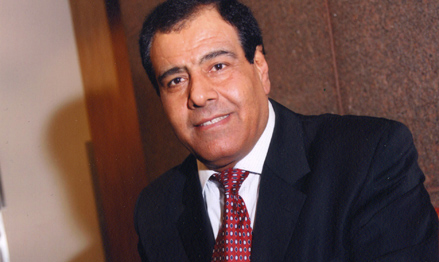Latest News Archive
Please select Category, Year, and then Month to display items
14 June 2024
|
Story Anthony Mthembu
|
Photo Suplied
 Jeremiah Hlahla, a UFS student completing his PhD in Botany at the University of Debrecen as part of an exchange initiative funded by the Erasmus+ Mobility Programme.
Jeremiah Hlahla, a UFS student completing his PhD in Botany at the University of Debrecen as part of an exchange initiative funded by the Erasmus+ Mobility Programme.
As part of an exchange initiative facilitated by the Erasmus+ Mobility Programme, Jeremiah Hlahla, a student at the University of the Free State (UFS), is nearing the completion of his PhD studies at the University of Debrecen in Hungary. Hlahla’s journey, which began in February 2024 and is set to conclude in July 2024, has been a remarkable learning opportunity. “As a first time-traveller to Europe, I have thoroughly enjoyed engaging with people from different countries and cultures,” he said.
The benefits of international collaboration
Hlahla is currently pursuing a PhD in Botany, focusing on plant stress physiology. “My current PhD project investigates the physiological, biochemical and morphological responses of vegetable-type soybean, or edamame, to combined drought and heat stress,’’ he explained. He considers the University of Debrecen the ideal institution to complete his research due to its extensive expertise and resources in similar projects. He noted that his colleagues at Debrecen conduct significant work on plant protection against biotic and abiotic stresses, including salt and drought stress, as well as proteins and amino acids in barley and other legumes.
Given the vast knowledge available on similar projects, Hlahla has found substantial engagement with his work at the University of Debrecen. “Upon arrival, I delivered an introductory lecture presenting my UFS project on the synergistic effects of combined drought and heat stress on the physiology and biochemistry of edamame. It was an engaging session as everyone could relate to my work and asked many questions,’’ he said.
Insights gained from the exchange
Hlahla has also gained valuable lessons that will assist him in his research career, including biotechnology and physiology tools. “I learned how to prepare samples and use high-performance liquid chromatography (HPLC) and reversed-phase ultra-high-performance liquid chromatography (UHPLC) to quantify proteins and amino acids,’’ he said. These techniques are beneficial not only for his current work but will also support future soybean research.
As his experience at the University of Debrecen nears its end, Hlahla reflects on the collaborations and friendships he has formed, which stand out as a significant highlight.
‘Gaza doctor’ Izzeldin Abuelaish visits UFS
2011-10-03
|

|
| Dr Izzeldin Abuelaish |
Dr Izzeldin Abuelaish, the Palestinian doctor who became the centre of a media firestorm in January 2009 when three of his daughters were killed and members of his family injured in an attack on Gaza, will be visiting our Bloemfontein Campus in October 2011. Dr Abuelaish, author of the bestselling I shall not hate: a Gaza doctor’s journey on the road to peace and human dignity, will be presenting two public lectures on 17 and 18 October 2011. He will be visiting the university at the invitation of Prof. Jonathan Jansen and will be hosted by the International Institute for Studies in Race, Reconciliation and Social Justice.
Dr Abuelaish, currently Associate Professor at the University of Toronto, was nominated for the Nobel Peace Prize in 2010. He founded the Foundation “Daughters for Life” (
www.daughtersforlife.com). During his visit, he will lead group discussions by using his personal biography to explain his commitment to the transformational value of a commitment to peace and human dignity. Dr Abuelaish will also be meeting with members of the medical fraternity and the Faculties of Education and the Humanities to discuss his foundation and its role in promoting women’s education.
For more information on Dr Abuelaish’s visit, please contact Prof. Jaqueline du Toit at
DuToitJS@ufs.ac.za or Prof. André Keet on 051 401 9808.